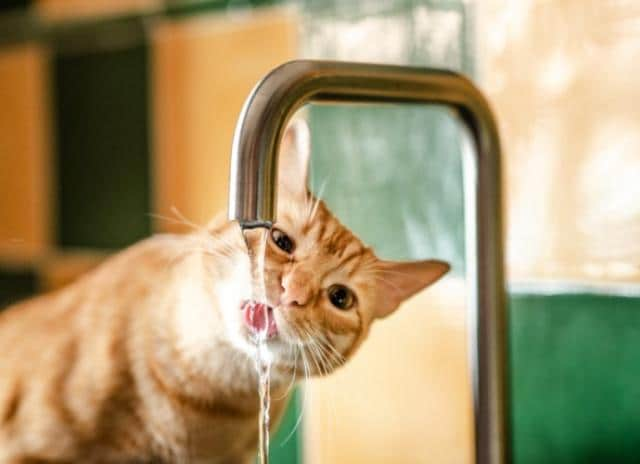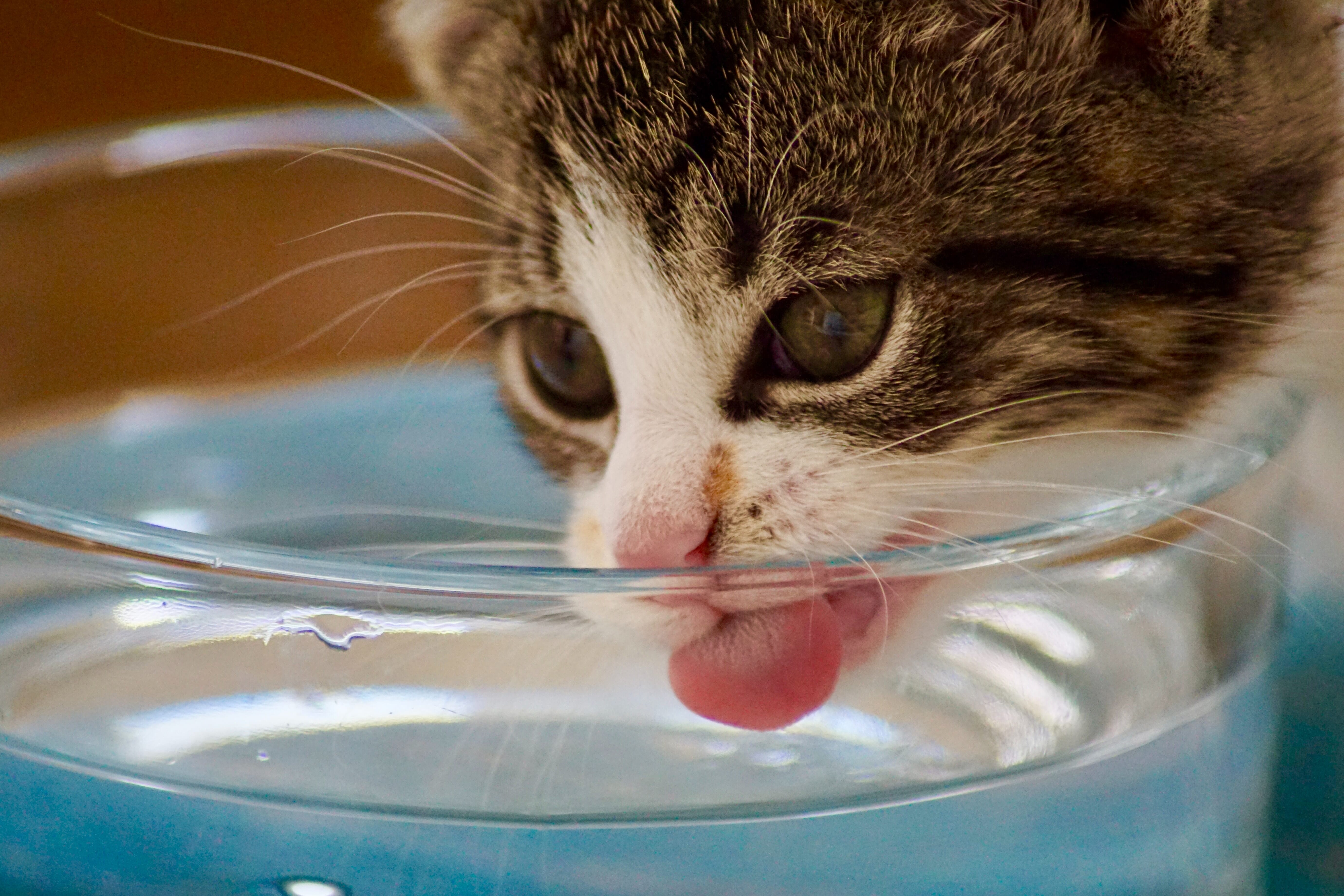causes of chronic dehydration in cats
The same process occurs for different reasons in hyperthyroidism and unmanaged diabetes both of which often cause dehydration in cats. Overheating in hot weather.

Chronic Cat Dehydration Mud Bay
Common Causes of Dehydration in Cats.

. Inflammatory bowel disease also called IBD is the most common cause of continued or chronic vomiting and diarrhea in cats and dogs meaning vomiting andor diarrhea occurring at least twice a week for months or years. They also can be picky when it comes to water condition. Hard and dry feces.
An injury such as a pelvic fracture or trauma to the abdomen can also cause kidney problems. Anxiety or stress Allergies Inflammatory bowel disease Nerve problems Excessive grooming leading to extra hair in the GI tract Tangled hair on the buttocks Sedentary lifestyle Side effects of some medications Obesity Perianal disease. The most common causes of dehydration in cats are diseases that cause increased water loss.
Cats have evolved as obligate carnivores and dont naturally drink water when eating fresh prey or wet foodboth of which are about 60 to 70 water. Inflammatory Bowel Disease IBD in Cats. Apart from this congenital deformity of the spinal cord is another cause of chronic constipation in cats.
Panting is a massive cause of water loss so cats may become more easily dehydrated during hot weather or after marathon sessions of laser chasing. Increased urination Medical conditions such as diabetes and kidney disease in which the cat urinates more often leading to excess. Why It Is Important to Recognise the Signs of Dehydration in your cat.
Bacterial and viral infections of the GI tract can cause your cat to experience severe diarrhea and vomiting both of which can lead to extreme weight loss and dehydration. Fevers can also bring about dehydration either through trying to cool themselves like above or through just the general feeling of malaise that leads them to not want to drink. Dissatisfaction with the water or water bowl may keep your feline from drinking.
Hyperthyroidism and unmanaged diabetes also cause dehydration in cats. Other causes of constipation in cats include. Sudden renal failure is often the result of a blockage in the lower urinary tract or a bladder defect most of which are congenital.
Excessive straining while passing stools. From the short-term dangers of dehydration to the potentially long-term threats of kidney failure the two conditions have contrasting symptoms treatments and diagnoses. But without an optimal amount of water in their system their internal organs must work a bit harder.
Low-level dehydration isnt a problem for your cat if it occurs for a week. Chronic kidney disease diabetes vomiting diarrhea and hyperthyroidism all fall into this category. Decrease in frequency of defecation.
There are multiple reasons why cats may not consume an ideal amount of water. Chronic dehydration is particularly difficult on the kidneys which process urine. Cats are prone to a low thirst drive as their instinct is to derive adequate water from eating live prey.
Rapid dehydration due to shock is another common explanation. Just like cats and dogs dehydration and kidney failure in felines are two conditions that might share a few similarities but theyre mostly different from one another. Dehydration in cats is typically caused by the cat not drinking enough water or by excessive water lossDehydration could be brought about by many different factors like.
With that being said it. Symptoms of Chronic Constipation in Cats. Pain in the abdomen.
Risk factors for developing chronic dehydration include. Understanding Chronic Dehydration in Cats Why are cats susceptible to dehydration. Increased water loss can also be caused by some medications including diuretics that are commonly used to treat heart disease.
Dehydration could be brought about by many different factors like. It is thought that feeding an exclusively dry food diet may cause chronic dehydration which in turn may contribute to the development of CKD. What are 4 common causes of dehydration.
Ad Nutrient-Enriched Water That Promotes Hydration In Cats. Acute diarrhea is often an indicator of bacterial overload in a cats small intestine. Living in warmer climates.
What can cause dehydration in cats. What are the symptoms of dehydration in cats. Lack of fluid intake.
Usually seen in middle-aged cats and dogs IBD rarely occurs in dogs and cats less than 2. Diabetes Diarrhea Fever Heatstroke Hot weather or overheating Trauma Vomiting. Dehydration if left untreated could lead to severe health issues in your cat such as urinary diseases kidney disease cystitis and more.
Causes of Dehydration in Cats. Causes of Renal Failure in Cats. Hot weather or overheating.
While environmental conditions do account for some instances internal disease may also be present in cases of dehydration. Sickness Any sickness which results in a loss of appetite and thirst can lead to dehydration. Repeated vomiting or diarrhea will also cause dehydration in those unable to drink water to replace what theyve lost.
Chronic kidney disease Diabetes Vomiting Diarrhea Hyperthyroidism in cats Medications. Hydration Supplement For Cats. Chronic cat constipation symptoms include.
Dehydration as a result of increased water loss3. The causes of chronic dehydration can vary. Overworking the kidneys can lead to a condition called chronic kidney disease CKD.
Accidental confinement in a place where there is no access to water can also eventually lead to dehydration.

9 Tips For Caring For Very Old Cats Cat Symptoms Cat Renal Failure Renal Disease

Did You Know 1 In 3 Cats Will Develop Kidneydisease Pethealthnetwork Sdma Cat Diseases Cat Care Cats

Is My Cat Dehydrated Signs To Look For Petmd

All About Kidney Disease In Dogs Cat Illnesses Kidney Disease Cat Renal Failure

Focusing On Feline Hydration Veterinary Practice

Chronic Kidney Disease What Does Kidney Failure In Dogs Really Mean Human Food For Dogs Kidney Disease Cat Care


